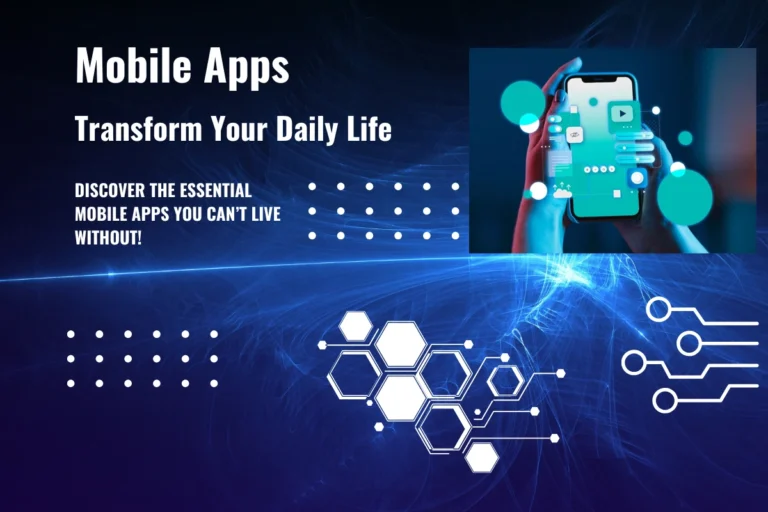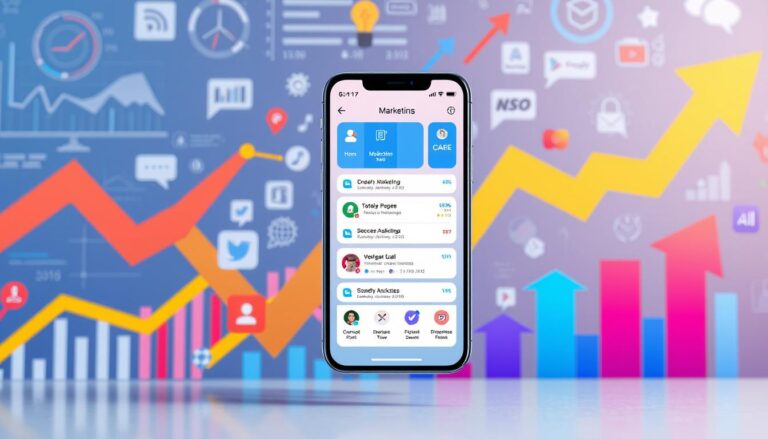How to Set a Successful Mobile Marketing Campaign: Best Practices, Data Insights, and Proven Results

Mobile devices have become an integral part of our daily lives, making mobile marketing an essential tool for businesses aiming to connect with their audience. However, setting up a successful mobile marketing campaign requires more than just sending out promotions—it involves careful planning, understanding your audience, and using data-driven strategies to maximize impact. This guide will walk you through the key elements of creating an effective mobile marketing campaign, from defining your goals to measuring performance, ensuring that your efforts lead to tangible results. By following proven best practices and leveraging data insights, you can drive meaningful engagement and achieve long-term success.
Table of Contents
What are Mobile Marketing Campaigns?
A mobile marketing campaign refers to a series of activities designed to promote products or services to mobile device users. These campaigns can be executed through various channels such as SMS, push notifications, mobile apps, mobile websites, and social media. The goal is to target users directly through their mobile devices, offering a more personalized and immediate connection.
The mobile marketing campaign has several key components:
- Target Audience: Defining who your audience is and how they use their mobile devices.
- Mobile-Friendly Content: Creating content that is optimized for mobile platforms, including short messages, videos, and interactive content.
- Channels: Identifying the most effective channels to reach your audience, including social media, mobile apps, SMS, and email.
- Analytics: Tracking and measuring the performance of your campaigns to optimize and improve future efforts.
Types of Mobile Marketing Campaigns
Mobile marketing campaigns come in many forms, each designed to fit a particular marketing objective or target audience. Below are some of the most common types:
- SMS Campaigns SMS marketing remains one of the most effective ways to reach customers directly. With an open rate of over 90%, text messages are a powerful tool for instant communication, promotional updates, and time-sensitive offers. Incorporating SMS as part of your mobile marketing strategy ensures high engagement.
- Push Notification Campaigns Push notifications are short messages sent by mobile apps to engage users, even when the app is not in use. These notifications can be highly personalized and are often used for reminders, offers, or new content alerts. A well-executed push notification strategy can significantly increase user retention.
- In-App Advertising In-app advertising allows businesses to place ads within mobile applications. These can be banner ads, video ads, or interactive ads that blend seamlessly with the app’s user experience. The rise of in-app advertising has made it easier for businesses to target users with relevant content in real time.
- Location-Based Marketing Location-based marketing uses a mobile device’s GPS capabilities to deliver marketing messages based on the user’s geographic location. This can be used for proximity marketing in stores or for location-specific offers and services. As part of a mobile marketing strategy, location-based marketing helps businesses deliver timely and relevant messages to their customers.
- Social Media Marketing Mobile users spend a significant amount of time on social media platforms. Using targeted ads or organic campaigns on platforms like Instagram, Facebook, and TikTok can help businesses reach a mobile-savvy audience. Integrating mobile app marketing with social media marketing provides an opportunity to tap into a large and engaged audience.
Best Practices for Mobile Marketing Campaigns
To create a successful mobile marketing campaign, businesses need to follow best practices that maximize their impact and drive engagement:
- Personalization
Personalizing content based on user preferences and behaviors makes campaigns more effective. Using data analytics, businesses can tailor their messages to meet the specific needs of their audience, making personalized mobile marketing a key factor for success. - Clear Call-to-Action (CTA)
Every mobile marketing campaign should include a clear and compelling CTA. Whether it’s clicking a link, signing up for a newsletter, or making a purchase, the CTA should guide the user toward the next step, especially when leveraging push notifications and in-app advertising. - Optimizing for Mobile Devices
All content—whether it’s a website, email, or advertisement—must be optimized for mobile devices. This includes responsive design, fast-loading pages, and content that is easy to read and interact with on small screens. A focus on mobile app marketing ensures users have a seamless experience across all devices. - A/B Testing
A/B testing allows marketers to test different versions of a campaign to determine which one performs best. This can help in fine-tuning messages, designs, and delivery methods for optimal results, especially for mobile advertising trends where customer preferences rapidly change. - Compliance with Privacy Regulations
Mobile marketing campaigns must comply with local privacy laws, such as GDPR and CCPA, ensuring that users have given consent for their data to be used for marketing purposes. Businesses involved in personalized mobile marketing need to be particularly vigilant in adhering to these regulations.
Measuring the Success of Mobile Marketing Campaigns
To gauge the effectiveness of a mobile marketing campaign, businesses need to track key performance indicators (KPIs). The most important KPIs include:
- Click-Through Rate (CTR): Measures how many users clicked on a link or ad.
- Conversion Rate: Tracks the number of users who completed the desired action (e.g., making a purchase or filling out a form).
- Retention Rate: Measures how many users continue to engage with your brand after the initial interaction.
- Cost Per Acquisition (CPA): Calculates how much it costs to acquire a new customer through the campaign.
- Return on Investment (ROI): Determines the overall profitability of the campaign.
Table 1: Common KPIs for Mobile Marketing Campaigns
| KPI | Description | Importance |
|---|---|---|
| Click-Through Rate | Percentage of users who click on a link in the campaign | High CTR indicates strong user interest |
| Conversion Rate | Percentage of users who complete a desired action | Reflects how effectively the campaign drives action |
| Retention Rate | Percentage of users who stay engaged with the brand | A high retention rate shows long-term engagement |
| Cost Per Acquisition | Cost to acquire one customer through the campaign | Helps in budgeting and assessing cost efficiency |
| Return on Investment | Profitability ratio of the campaign | Evaluates overall success in financial terms |


The Role of Data in Mobile Marketing Campaigns
Data plays a crucial role in designing and executing successful mobile marketing campaigns. By leveraging customer data, businesses can create more targeted and effective campaigns. Data-driven marketing allows for better segmentation, personalized messaging, and predictive analytics, making mobile advertising trends easier to follow.
Table 2: Benefits of Data-Driven Mobile Marketing Campaigns
| Benefit | Description |
|---|---|
| Better Targeting | Use data to segment audiences and deliver personalized messages |
| Improved Campaign Performance | Data insights help optimize campaign elements for higher ROI |
| Enhanced Customer Experience | Tailored campaigns based on user behavior improve satisfaction |
| Predictive Analytics | Anticipate customer needs and behaviors for proactive marketing |


Case Study: A Successful Mobile Marketing Campaign
One notable example of a successful mobile marketing campaign is that of Starbucks. The brand launched a mobile loyalty app that allowed customers to order ahead, make payments, and collect rewards. With personalized push notifications and exclusive offers, Starbucks was able to increase customer engagement and loyalty, leading to a significant boost in revenue.
Conclusion
Mobile marketing campaigns are a powerful way for businesses to connect with their audience in a direct and personal manner. Whether through SMS, push notifications, or in-app ads, these campaigns allow companies to deliver timely, relevant messages that drive engagement and conversions. By following best practices, leveraging data, and continuously optimizing performance, businesses can maximize the success of their mobile marketing strategies.
As mobile technology continues to evolve, the potential for even more personalized and effective marketing campaigns will grow, making mobile marketing an indispensable tool for businesses of all sizes.






2 Comments
Comments are closed.